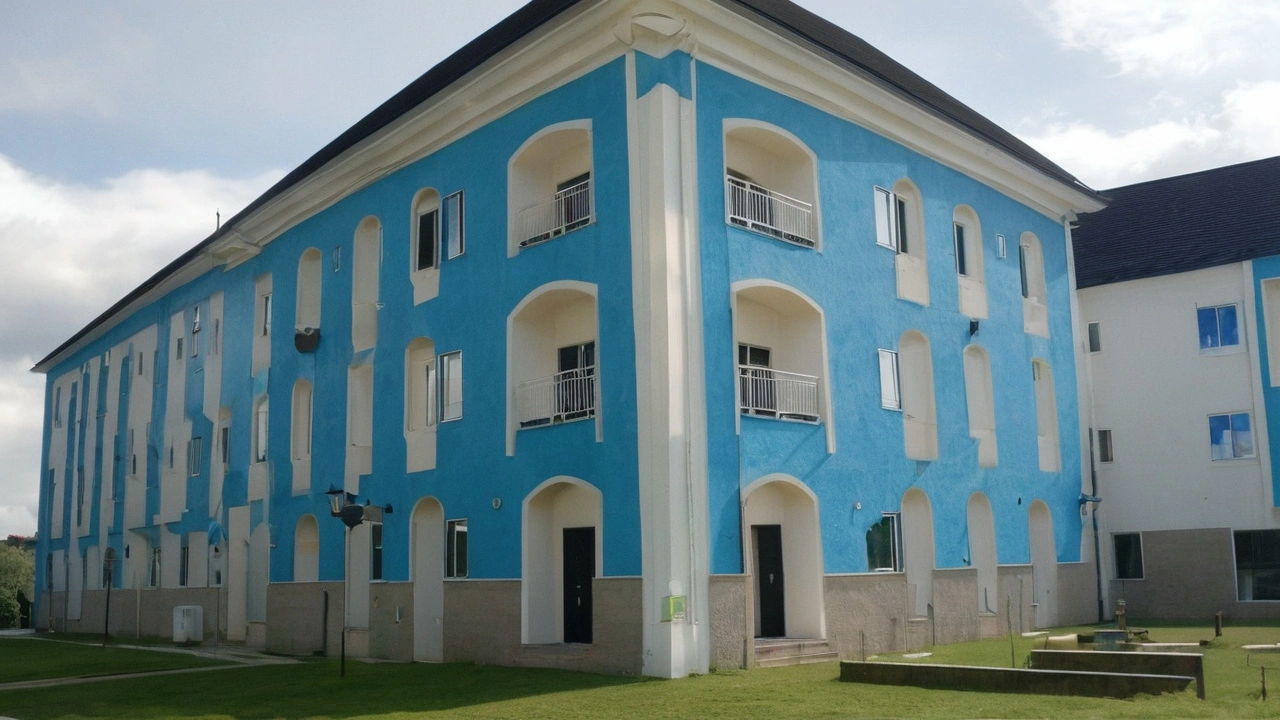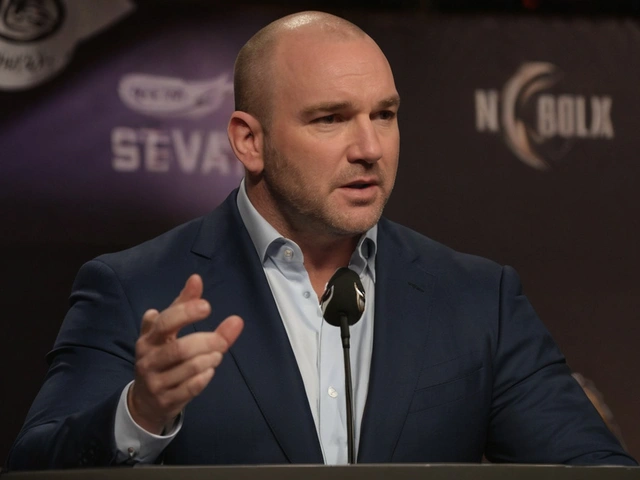Tinubu Empowers 13 Specialized Tertiary Institutions with New Governing Councils
In a significant move aimed at bolstering the administration and autonomy of Nigeria's specialized tertiary institutions, President Bola Tinubu has authorized the formation of governing councils for 13 such institutions. This decision comes as a direct response to previous directives that mandated a review of the governing boards overseeing these educational establishments. Announced by Ajuri Ngelale, Tinubu's Special Adviser on Media and Publicity, the appointments signify a decisive step toward addressing the critical concerns raised by the Academic Staff Union of Universities (ASUU).
For years, the absence of governing councils had disrupted the smooth functioning and autonomous operation of these institutions, a void that ASUU had continually highlighted. With the new councils now in place, there's renewed hope that the specialized academic bodies can better fulfill their missions. Notably, the institutions affected by this move include the Maritime Academy of Nigeria, Oron in Akwa Ibom State, and the Nigerian College of Aviation Technology, Zaria in Kaduna State, among others.
Presidential Directives and Their Implications
The establishment of these councils is not merely a routine administrative shuffle but a calculated strategy to enhance institutional governance. President Tinubu’s directives earlier this year called for a comprehensive review of the governing frameworks of tertiary institutions nationwide. This review aimed to identify longstanding issues and to streamline operations to ensure that these institutions can meet their educational mandates more effectively. The revelations from the review indicated significant gaps in governance structures, which, if left unaddressed, could jeopardize the quality of education and management within these institutions.
The Maritime Academy of Nigeria and the Nigerian College of Aviation Technology are critical to Nigeria’s broader educational and economic landscape. Their roles extend beyond traditional academia, contributing significantly to vital sectors like maritime and aviation. These sectors are linchpins in the country’s socioeconomic framework, and any disruptions in the education pipelines feeding these industries could have far-reaching consequences. The formation of new governing councils seeks to mitigate such risks and ensure that these institutions can operate at peak efficiency.
Diverse and Expert Membership
One of the standout features of the new appointments is the diversity and expertise of the council members. Chosen for their extensive backgrounds in various fields, these individuals are expected to bring a wealth of experience and a fresh perspective to the governance of specialized tertiary institutions. By ensuring that each council is composed of individuals who understand the unique challenges and opportunities within their respective fields, the Tinubu administration aims to foster a more responsive and dynamic governance structure.
The members appointed to these councils are not merely figureheads but active participants expected to engage in the day-to-day oversight and strategic planning necessary for these institutions to thrive. Their roles will encompass everything from financial oversight to curriculum development, ensuring that the institutions not only remain relevant in an ever-changing academic landscape but also set new benchmarks for excellence.
Addressing ASUU’s Longstanding Concerns
The establishment of the new governing councils also addresses a critical point of contention with the Academic Staff Union of Universities. ASUU has long criticized the government for neglecting the governance needs of tertiary institutions, arguing that the absence of robust governing councils hampers effective administration and stifles academic freedom. By constituting these councils, the Tinubu administration is taking a significant step toward reconciling with ASUU and laying the groundwork for more collaborative future engagements.
ASUU's concerns are not without merit. The lack of governing councils had led to a bureaucratic bottleneck that affected everything from hiring practices to the disbursement of funds. This often resulted in delays that hampered academic programs and infrastructure projects, further exacerbating the challenges faced by students and faculty alike. With the new councils in place, there's a renewed optimism that these issues can be addressed more effectively, paving the way for smoother operations and enhanced academic output.
A Strategic Vision for the Future
Looking ahead, the strategic vision behind the formation of these councils extends beyond immediate governance improvements. It’s part of a broader plan to elevate the standards of Nigeria’s specialized tertiary institutions, making them competitive on both regional and international stages. By strengthening governance structures, the Tinubu administration aims to attract more research funding, foster international collaborations, and improve overall academic performance.
The new governing councils will also play a crucial role in aligning the institutions’ objectives with national developmental goals. In fields like maritime and aviation, where Nigeria aspires to be a leading player, robust educational institutions form the backbone of industry growth. The councils will be instrumental in ensuring that the curriculum and training programs offered are in sync with industry needs, thus producing graduates who are not only academically sound but also industry-ready.
Community and Stakeholder Engagement
An equally important aspect of the new governance framework is community and stakeholder engagement. The councils are expected to bridge the gap between the institutions and their surrounding communities, ensuring that the benefits of improved governance trickle down to the local level. This involves everything from community development projects to the extension of educational resources to underserved areas.
Stakeholder engagement also means involving industry partners in governance processes. By fostering partnerships with companies and organizations within their respective sectors, the institutions can offer more practical and relevant training programs. These collaborations can lead to internships, research opportunities, and even direct job placements for graduates, thereby enhancing the institution’s appeal to prospective students.
Conclusion
The formation of governing councils for 13 specialized tertiary institutions marks a significant milestone in Nigeria's educational landscape. It addresses crucial governance gaps, responds to ASUU's longstanding concerns, and sets the stage for more robust and dynamic academic institutions. By bringing in diverse and expert members, the Tinubu administration aims to create a responsive and effective governance structure that can propel these institutions to new heights. As these councils get to work, there is widespread hope that their efforts will translate into improved academic performance, better industry alignment, and enhanced community engagement.




Great to see the government stepping up for these niche schools-this will give students a clearer path to success and industry jobs.
It's refreshing when policy aligns with the academic community; the new councils should bring much‑needed structure and help address the bottlenecks that have frustrated faculty for years.
The inauguration of these governing bodies constitutes a commendable rectification of the erstwhile administrative lacunae that have beleaguered our specialized institutions; such an initiative undeniably augments the nation's intellectual capital.
Finally some real action after endless promises.
Seeing the appointment of diverse experts to the councils fills me with optimism about the future trajectory of Nigeria's specialized tertiary sector. Each council member, by virtue of their professional pedigree, brings a nuanced perspective that can bridge theory and practice in ways previously unattainable. This collaborative ethos will likely translate into curricula that are both contemporary and industry‑relevant, ensuring graduates are ready to contribute from day one. Moreover, the inclusion of stakeholders from the maritime and aviation communities signals a commitment to aligning educational outcomes with national development goals. As a mentor, I have witnessed countless students struggle due to outdated syllabi; revitalized governance can rectify that gap. The councils' oversight of financial management should also curb the misallocation of funds that have plagued many institutions. With transparent budgeting, resources can be channeled into modern labs, research initiatives, and faculty development programs. I anticipate a ripple effect where improved academic standards attract international partnerships, opening doors for joint research and exchange programs. Such collaborations will not only elevate the institutions' global standing but also provide students with invaluable cross‑cultural experiences. Community engagement, another pillar of the councils' mandate, will foster outreach projects that benefit surrounding populations, reinforcing the social contract of higher education. In parallel, stronger ties with industry can spur internship opportunities, easing the transition from campus to workplace. The strategic vision outlined in the presidential directive reflects a holistic understanding of education as a catalyst for socioeconomic progress. By addressing the long‑standing grievances of the Academic Staff Union, the government also paves the way for a more harmonious labor environment. Ultimately, the success of these councils will hinge on sustained political will and continuous stakeholder dialogue. I am hopeful that this renewed governance model will set a benchmark for excellence across the continent.
Honestly, I think the whole thing is just a PR stunt; without genuine funding and enforcement, these councils will become another layer of bureaucracy.
Wow what a step forward!! I love seeing the govt finally listen to us 🫶 this could mean more real‑world training for our kids 😂 hope they pick people who really know the industry.
These councils have the potential to turn challenges into opportunities; with focused mentorship and clear goals, we can watch the institutions thrive.
Finally some progress after years of silence
It’s a solid move, but we’ll have to see if the implementation lives up to the hype.
The councils could be a game‑changer, a real turbo‑boost for the academe, if they actually cut through the red‑tape and get stuff done.
Let’s hope the new members actually roll up their sleeves and dive into the nitty‑gritty-no more fancy titles without real action.
Just another way for the elites to keep control, they’ll probably appoint their own people and keep the real reforms hidden.
It is encouraging to witness this development; nevertheless, sustained collaboration among all stakeholders-government, academia, industry, and the community-will be essential to ensure the councils achieve their intended impact.